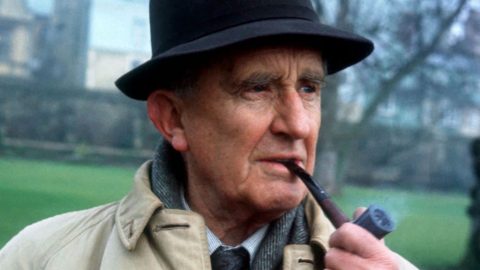In The Critic, Sebastian Milbank marks the 50th anniversary of the death of J.R.R. Tolkien:
A romantic Edwardian, steeped in Northern European folklore and Victorian literature, Tolkien was and is despised by large parts of the fashionable literary establishment. I have known very few neutral reactions to his work. People either love or loathe Lord of the Rings, which seems doomed to eternally inspire adoration or ire, and nothing much in between.
The often ferocious response of many critics perhaps stemmed from the apparent anachronism of the book, combined with its massive popularity. It was published in 1954, at a time when literary modernism was dominant and pervading the academy. Modernist writers were obsessed with interiority, broke with prior literary convention, and traded in irony, ambiguity and convoluted psychology. Literary critics of the time were taking up the “New Criticism”, which dispensed not only with the previous generation’s fascination with historical context in favour of close reading, but also with the traditionalist concerns for beauty and moral improvement, which were regarded as subjective and emotionally driven. Spare, complex prose, focused on the darker side of society, was in vogue. Into this context dropped 1,200 pages of dwarves, elves and hobbits in a grand battle of good and evil. They were greeted with the sort of enthusiasm one can imagine.
Edmund Wilson called the books “balderdash”, a battle between “Good people and Goblins”. The book’s morality was a sticking point even for the most sympathetic critics, with Edwin Muir lamenting that “his good people are consistently good, his evil figures immovably evil”. As his work travelled into the 60s, political problems cropped up, with one feminist critic writing a book-length attack on the series to denounce it as “irritatingly, blandly, traditionally masculine”.
The mystery of how a book can so sharply divide opinion is answered perhaps by how profoundly original and unusual The Lord of the Rings and Tolkien’s wider legendarium are. They are shamelessly moralistic, written on the basis of exhaustive literary theory, linguistics, geography and world-building, and quite devoid of social commentary or Empsonian irony. Yet they are as much a radical departure from prior literary forms as modernist literature itself is, making the book doubly at odds with prevailing style and doubly original.
The moralism of Tolkien’s work is not, as some critics seem to suppose, the product of schoolboy simplicity. It is far too rigorous for that. So morally charged and orchestrated is the novel, that it would be numbered amongst the small number of works that might have passed Plato’s test for literature. Not only is this in respect of its exacting honouring of good characters and depreciation of wicked ones within its narrative framework, but equally in Tolkien’s utter refusal of allegory, thus meeting Plato’s challenge that poets are dangerous imitators of the world.




